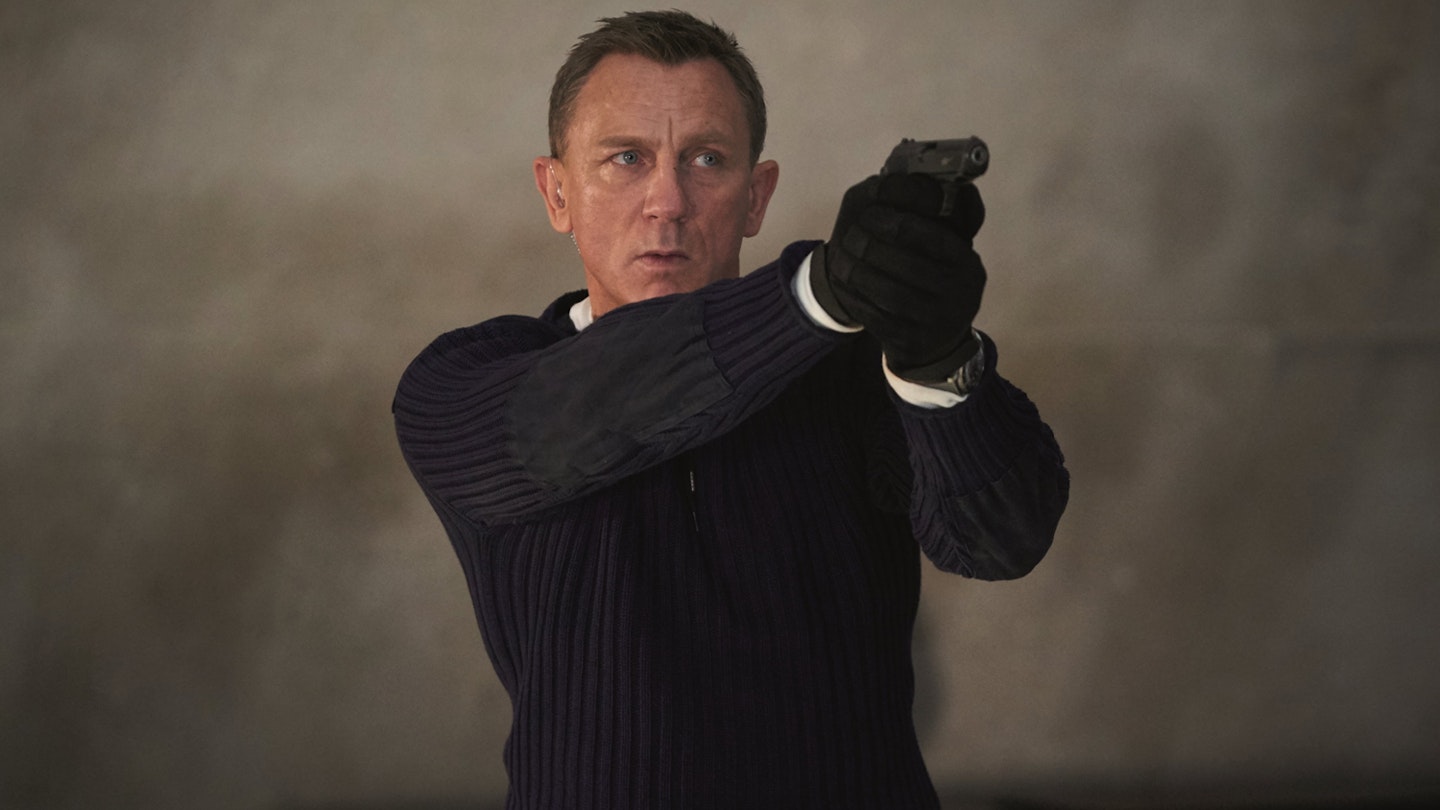And just like that, Daniel Craig’s tenure as James Bond has come to a close. 15 years on from reinventing the spy saga in Casino Royale, Craig is hanging up his tux in No Time To Die – sending one of the most daring and distinctive takes on 007 on his final cinematic mission.
To celebrate, Craig stopped by the Empire Podcast for a lively chat discussing the film’s many delays, his early struggles with Bond, how he’s changed over his time playing the character, and what we can expect from the upcoming Knives Out sequel.
Listen to the full episode on the Empire Podcast now, or read the highlights here.
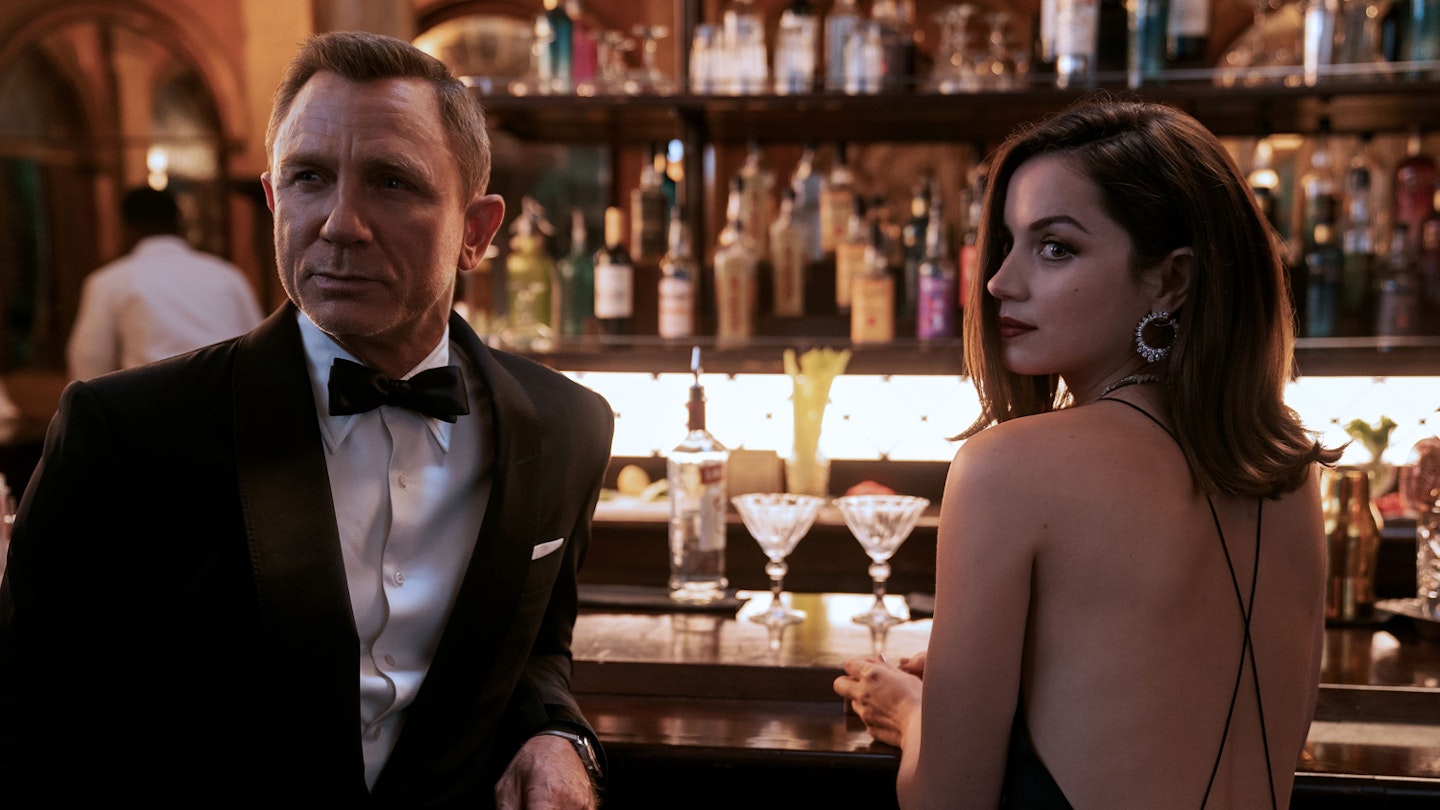
EMPIRE: Last time we spoke was in New York, just before Christmas 2019. Much has happened since then. Has this enforced delay meant that you’ve had more time to come to terms with this being the end for you?
DANIEL CRAIG: I suppose. Although, of course, there's so much unfinished business with the movie. Ordinarily, especially with Bond movies, there is such a quick turnaround. We finish the movie, there's no time at all to edit the movie, and then the movie’s out and suddenly we're doing press. It's sort of this rollercoaster that happens after a Bond movie, it's unusually quick. Then that ramped up. I spoke to you, everything was ready to go, we did something where they lit up Time Square. Then it stopped. With what's been happening in the world, which has put so many things into perspective for everybody, I've just had to try and be Zen about it, as frustrating as it was. All these people have put in all this hard work to get something out, and then we just have to shelve it.
Thankfully, MGM and Universal were incredibly brave and said, ‘We want to put this into cinemas, let's wait’ – because I'm sure you know that the rumours were going around that it could just get sold to a streaming service and that would be it. Again, trying to keep things in perspective it's not the end of the world and people would get to see it, but it just felt wrong. So we're here and it feels like the right thing to be doing, and hopefully this is a chance to celebrate and say, ‘See yous, thanks very much, it's all been good.’
Is that your last line as Bond?
That's my speech that I'm planning, and that's where it's at at the moment.
Well Lazenby got to break the fourth wall, so you should get to break the fourth wall as well. In the opening of On Her Majesty’s Secret Service he says, ‘This never happened to the other fella’.
I’d forgotten about that. No, they don't let me do that. No-one has ever allowed me to do that.
Why not? It's your last movie, party on, just do whatever the hell you want to do.
What like, winks at the camera and walks off. Or says about the bad guy, ‘He's in a bad mood’ or something like that?
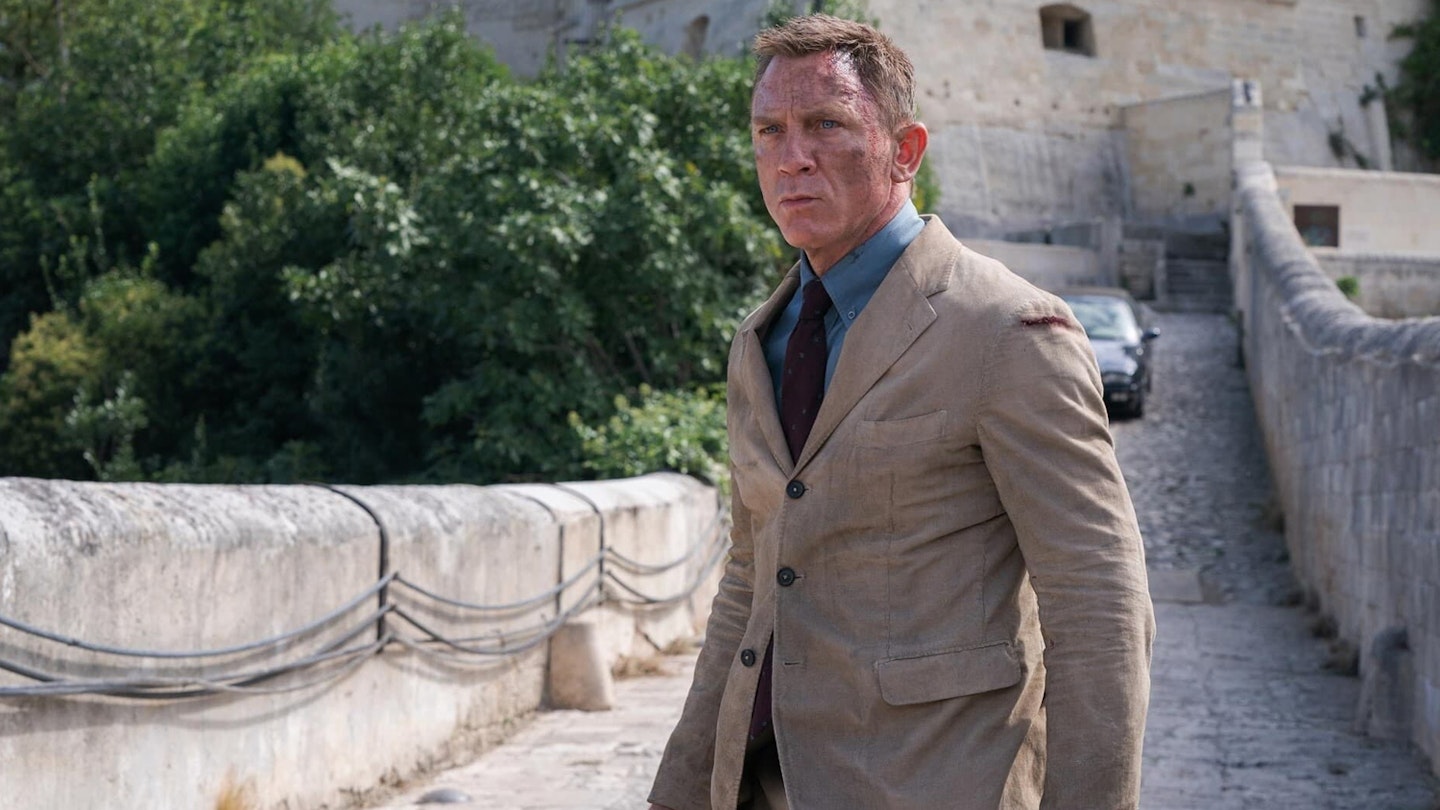
You've been very candid in the documentary on Apple right now about the struggles you had with being Bond, especially early on.
I hope that doesn’t come across as a whine. It was an opportunity to talk about it, and I wasn't really looking forward to talking about it for a number of reasons. One, because it was a tough time and I just thought, ‘It's all fine, move on, don’t worry about it’, and also because I didn't want it to be like, ‘Poor old me, this happened’.
But actually, it was really nice to sit there with Michael [G. Wilson] and Barbara [Broccoli] and remember it, because I remember it with massive fondness, and there was all this other shit that was going on around it that was actually meaningless at the time, because I knew we had a good film. I knew that Casino Royale was good. So you go, ‘Wait and see, it's gonna be great. Don't worry.’
It feels like creatively we've put in all the right things to make it so that there's a lot of lightness and a lot of emotion.
Was there a point in which it clicked for you? Where all the worries, all the stresses, all the struggles and strains went away for you?
10 minutes ago? Listen, no, I just don't think it's that kind of job. And that's probably part of my problem; I take things quite seriously unfortunately, but also because I care, and I love what I do. So I'm never not trying to figure out whether we can make it a bit better. It's James Bond. This is, for me personally, the biggest thing I've ever done in my career. It's one of the biggest things in my life. It's massively important to me, and maybe that’s taking it too seriously, and sometimes you’ve got to lighten it [up].
I think we've definitely managed to do that on this movie. It feels like creatively we've put in all the right things to make it so that there's a lot of lightness and a lot of emotion. But I'm always trying to ask the question, ‘Are we doing good enough?’ I’m looking around the room saying, ‘If this isn't good enough, it's not in the movie. Let's move on. Let's get something else. Let's find something better.’ So most people probably think of me as a pain in the ass.

You've interrogated the part from a very active standpoint, and you've got this arc that runs through all five films, which is completely different from any Bond actor who has approached the role before. Was there anything that you couldn't do with the character – any eccentricities or foibles that you couldn't quite make work?
There are no restrictions on it, but it's definitely James Bond. A lot of people are talking about the humour in the movies, and there's a lot more humour and gags when Roger [Moore] did it. I've always said I'd love to do gags, but with the way we've done the movies, you can't write gags. The one-liners are going to feel out of place. I was always maintaining that if I start trying to say one-liners, people are just gonna go, ‘No’.
What I will say is that Phoebe [Waller-Bridge] came in on an already busy schedule and she just gave everybody in the cast a little more leeway to be funny. Because it's a very serious situation, the funny lines are when people break that seriousness; that's what makes people laugh, I think. There’s a little more improvisation going on with everybody. There are moments from Ben [Whishaw] and Lashana [Lynch] and everybody that are genuinely funny, and I credit that to Phoebe’s influence. She puts some really smart things in there. I don't think that answered your question, I just went off on a tangent.
[The _Knives Out_ sequel] is different, and that's the amazing thing. It's still a Benoit Blanc mystery, but it's very different.
Was there anything going into this that you hadn't done with Bond that you wanted to do? Was there a bucket list of Bond?
I wanted to throw the kitchen sink at this one a bit. We all did. I didn't want to think about all the gadgets and stuff, but Cary [Joji Fukunaga, director] was really good with all that. He snuck them all in here, and there's some great stuff in there that I'm just really glad is in the movie. First and foremost, I never forget that these are Bond movies, and you've got to have stuff that makes it a Bond movie. Otherwise, what's the point? It's just derivative of something else. So we've definitely pulled out the stops on this one, and found new ways of doing them, and that was always my dream – to find the old tropes, the gags, and find a fresh way of selling them. I think we've really succeeded in this one.
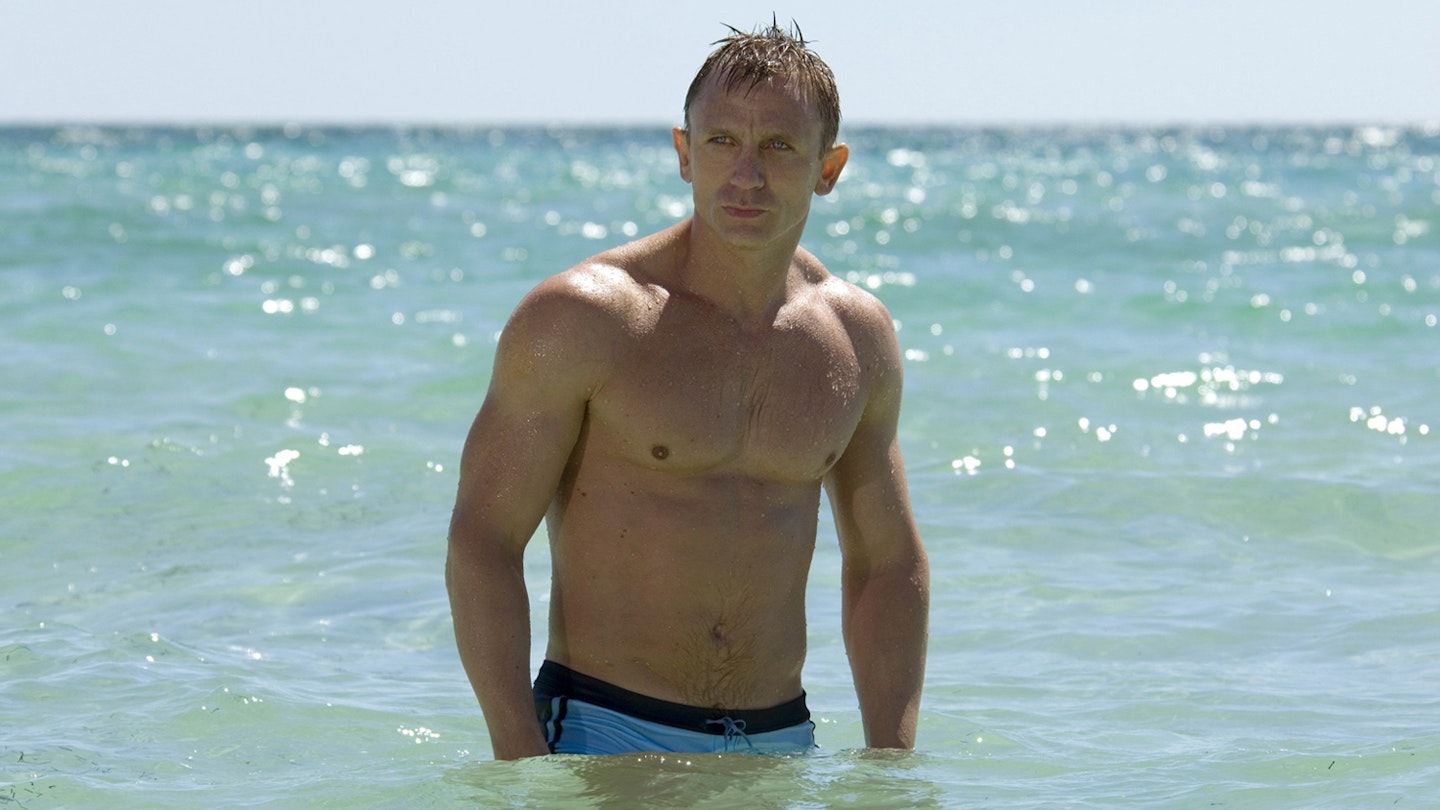
We know that Bond changed your life, but did it change you as an actor? Are you a different actor now than you were when you started on Casino Royale?
Yes, and for a while I mourned the actor that I was in Casino Royale, because in Casino Royale I didn't know any better. I just didn’t get all of the pressure. Then you do (the film) and you get some success, and you go, ‘Oh shit’. It’s a double-edged sword. If I made Casino Royale and it was a pile of shit and I walked away, we wouldn't be having this conversation. And maybe I would have carried on acting and that would have been great. But it was a hit, and then there was the pressure that came with the need to succeed.
Sometimes I would yearn after the person I was when we did Casino Royale. Sometimes too much knowledge is just a little bit not a good thing. I was in the dark about a lot of things, about the way things worked, about the way the world really viewed Bond. Then I suddenly started understanding them, and the weight of it bored me down. We did Quantum Of Solace, which was a bit of a shitshow to say the least, and the full weight of it made me locked up. Thankfully since then it's just been about loosening up and trying to get back to that feeling of Casino Royale, which is just like, ‘Come on, it’s James Bond, enjoy yourself. Let’s have a good time’. I mean, I’m still a moody cunt.
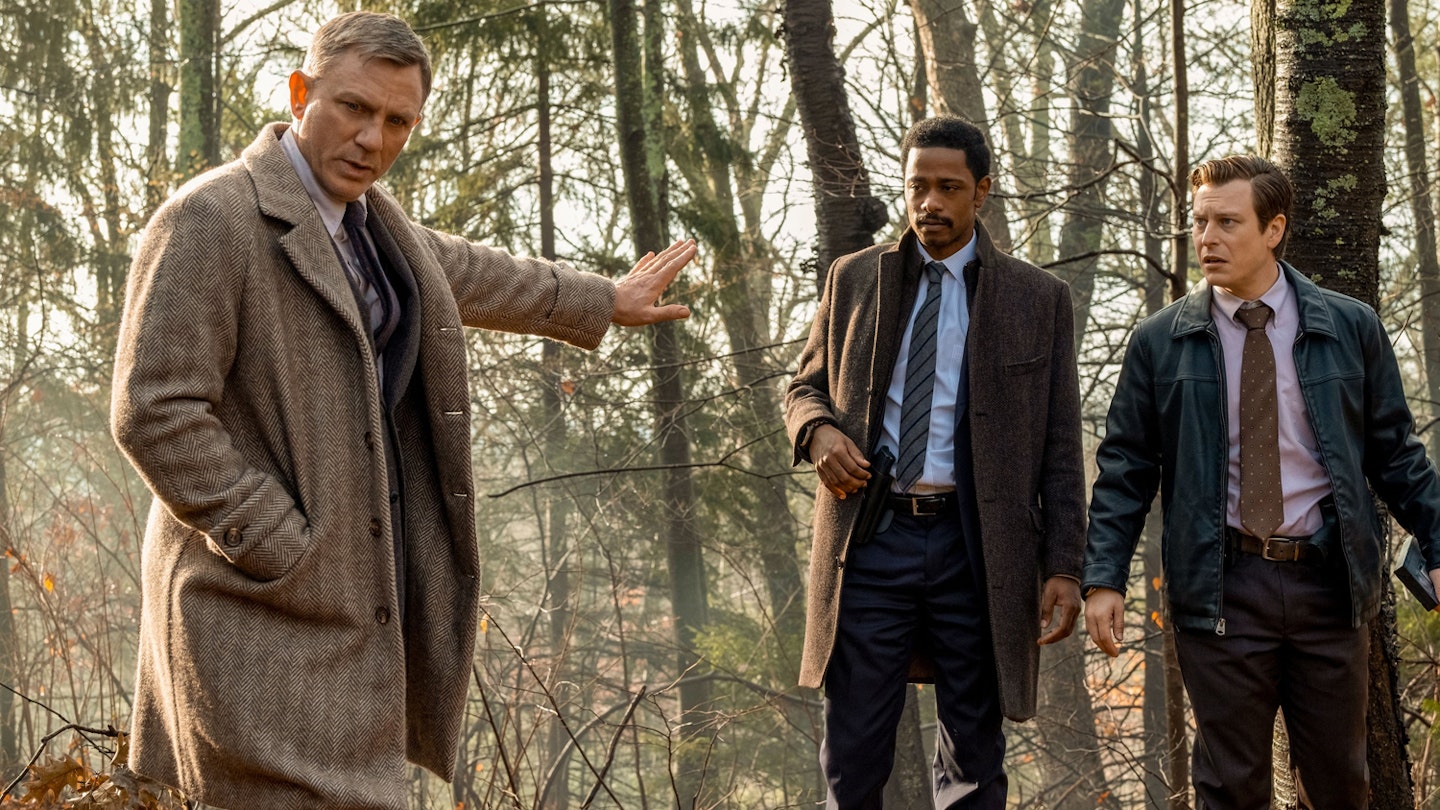
We have to ask about the future, because you’ve just returned to Benoit Blanc and we can’t begin to say how excited we are for whatever that film is going to be called.
I'm so lucky to have Rian [Johnson] in my life. He’s such a great writer. That script arrived and I was literally like, ‘Are you kidding me?’ I couldn't believe that he wanted me to play it. I was going, ‘It says Southern accent you went here. Really?’ And he's like, ‘Yeah?’
We've just finished the second one, literally weeks ago. They've just wrapped up in Serbia. Dare I say it’s better? We'll see. I don't want to tempt fate. It's different, and that's the amazing thing. It's still a Benoit Blanc mystery, but it's very different. I'm very excited about it.
